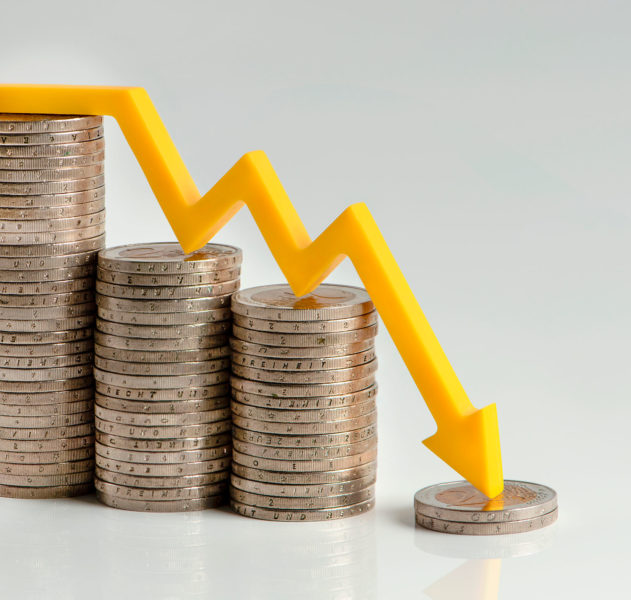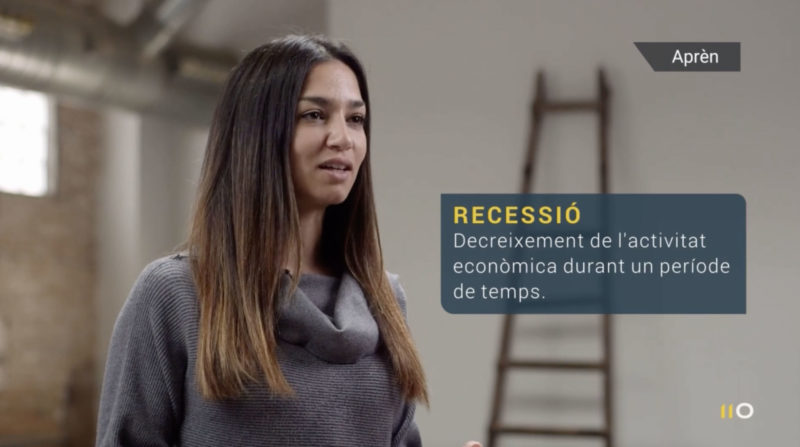

The risk of a “long and ugly” recession
Although former US Vice President Dick Cheney claimed that no one saw the great financial crisis of 2007-2008 coming, economist Nouriel Roubini warned in 2006 that we were heading for a deep recession. Now he foresees another “long and ugly” downturn, which could turn into the worst economic catastrophe of our lifetime if we do not take the right measures.
Recovering a 2% inflation rate without a hard landing for the economy is going to be “mission impossible”, according to economist Nouriel Roubini. He warns that we are not facing “a short and shallow recession, it’s going to be severe, long and ugly”, and could mean a plunge of up to 40% in stock prices.
Roubini, who earned the nickname Dr Doom for predicting the bursting of the housing bubble and subsequent recession in the first decade of this century, has long warned of high debt ratios for individuals, companies and governments, which would make a soft landing for the economy impossible.
As interest rates rise, he says, more and more households, companies, banks and zombie countries “are going to die”. In economics, the term “zombie” has become popular to refer mainly to institutions and companies that survive artificially by injecting loans, without which they would have to declare bankruptcy.
The inevitable rise in interest rates
This economist took the 75 basis point hike agreed at the September meeting of the US Federal Reserve as a given. And he expects hikes of at least 50 basis points at the November and December meetings, which would put US interest rates at least between 4 % and 4.25 % by the end of the year. If strong inflation persists, rates could go as high as 5 %.
At such interest rates, more and more companies will be unable to finance themselves or to service loans already contracted. It will be the death knell for many companies that are currently facing significant increases in production costs, supply chain disruptions and a sharp decline in demand.
Indeed, Dr. Doom identifies in the book ‘Megathreats‘ a number of threats to business and the economy today. These include an ageing population, protectionism, migration restrictions, relocation of factories from Asia to Europe and the US, US-China rivalry, climate change and recurring pandemics.
No room for manoeuvre
In this context, Nouriel Roubini believes that many countries will be unable to implement fiscal stimulus measures to counter the recession. On the one hand, the debt overhang means that many governments are “running out of fiscal bullets”. On the other hand, there is a risk that stimulus measures could overheat aggregate demand, which would be counterproductive for controlling inflation.
In short, this professor of economics at New York University predicts that between the end of 2022 and the end of 2023 the worst of the last two major crises will converge: we will have to face stagflation like the one experienced in the 1970s and suffer the consequences of massive debt defaults, as happened in the 2007-2008 crisis.
Just as in the last crisis mortgages and banks were the hardest hit, Roubini believes that in the recession that is upon us the weakest link will be companies and shadow banking, which in many cases “are going to implode”. Faced with this possible business crisis, the economist recommends “to be light on equities and have more cash”.
If you want to discover the best option to protect your savings, enter Preciosos 11Onze. We will help you buy at the best price the safe-haven asset par excellence: physical gold.





Molt bon article,
Cal q ens preparem pel q se’ns ve a sobre.
Celebrem que t’hagi agradat. La que ens ve a sobre l’haurem de passar com sigui. Moltes gràcies pel teu comentari, Manel!!!
Creus que hem de tenir metalic a casa ?
Penso que sempre podrem pagar, sigui en plàstic o sigui en metàl·lic, però malauradament, la llarga recessió no ens la traurà ningú… Moltes gràcies pel teu comentari, Joaquim!!!
👏
Gràcies, Joan!!!
Està molt bé, però realment què podem fer els petits?
Ens podem quedar amb l’última idea, “ser lleuger en accions i tenir més efectiu”. Serà important protegir el valor dels diners i ser més curosos que mai sobre on els dipositem. En seguirem parlant per aquí, Joan. 😉
Gràcies per aquest article tan entenedor
Gràcies, Francesc! 😊
Molt bon ticle el compartiré perquè tothom vegi el que estar per vindre
I tant, Cristian, el coneixement sempre s’ha de compartir, mai sabem a qui pot ajudar! Gràcies 💛
Estic en el mon de la fotovoltaica i el vent sembla bufar a favor però pel que veig cal nedar i guardar la roba. Ho tindré en compte.
Sempre és bo prevenir, Manel! 💪
👌 molt interessant
Gràcies Carles!
La veritat és que era força increïble que ningú hagués pronosticat la crisi del 2007-2008. S’haurà de fer cas a aquest economista que quan tocava va anar a contracorrent.
Em crida l’atenció el concepte “crisi lletja”
Les crisis són cícliques i periòdiques i estava molt clar que aquell desgavell de compra contínua de pisos i de constitució d’hipoteques i crèdits hipotecaris no podia continuar perquè era del tot desproporcionat. Moltes gràcies pel teu comentari, Mercè!!!
Prenc nota de l’article. A preparar-se👍
Celebrem que t’hagi agradat, Jordi, i moltes gràcies pel teu comentari!!!